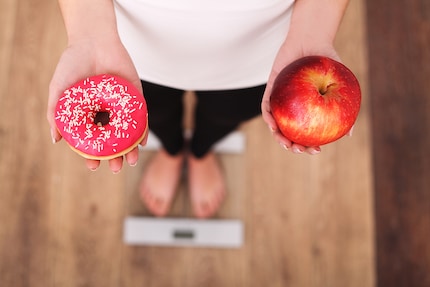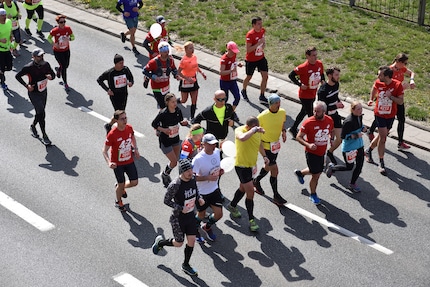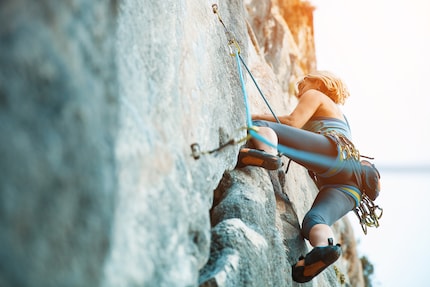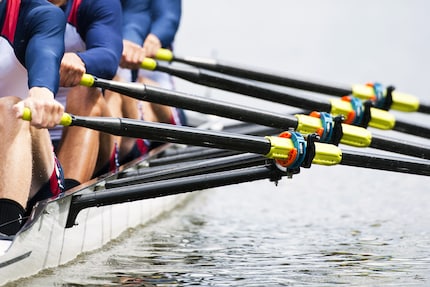
Product test
Review: the Tanita RD-545 body composition scale
by Patrick Bardelli

Your body weight fluctuates depending on the training phase you are in. How do you reach the optimum competition weight without sacrificing performance? Here are a few tips.
Depending on the sport, the body weight during the training phase is usually higher than the competition weight. It is not advisable to maintain your competition weight over a longer period of time, as otherwise there is too great a risk of injury and illness during everyday training. A negative energy balance increases the risk of losing not only fat mass but also muscle mass. This has negative consequences for your athletic performance. The difference between "normal" body weight and competition weight should not exceed three per cent.

If a weight loss of more than three per cent is necessary - for example, to reach a certain weight class in martial arts - the question arises as to whether this loss is associated with health risks. Also weigh up whether you can achieve the goal in the given time frame and whether the target weight is appropriate for your age and fitness level.
You should be able to maintain the competition weight without restrictive dieting and without developing an eating disorder or disordered eating behaviour. An athlete who is constantly losing and gaining weight may have set themselves an unrealistic body weight goal.

Various factors influence the balance between energy intake and energy consumption. How much energy you consume per day depends on your resting metabolic rate. This depends on age, gender, muscle mass, stress and also hormones. Thyroid hormones in particular regulate our basal metabolic rate.
Depending on the athlete, this consumption varies between 1300 and 2500 kilocalories per day. All the activities you do throughout the day are added to this resting metabolic rate. Finally, you can roughly estimate how much energy your body actually needs to maintain a healthy balance. Alternatively, you can get yourself a body analysis scale and track your activities with a sports watch. This will give you a better overview.
Most people want to lose as much weight as possible in as short a time as possible. However, this goal is unrealistic for athletes and does not make sense. In a study, it was shown that a weight reduction of 0.7 per cent per week resulted in more muscle mass being retained than a reduction of 1.7 per cent over the same period. The consequences of excessive energy reduction are not only a deterioration in performance, but also lower muscle strength or reduced ability to concentrate.
In addition, you are more susceptible to injuries due to fatigue and deficiency symptoms, such as iron deficiency. And you shouldn't forget psychological factors such as your emotional state. In other words, for an athlete with a detailed training programme, it is not advisable to cut back on more than 500 to 700 kilocalories per day.

Another important factor is protein. Are you consuming less energy? Then your protein intake is also reduced. However, athletes are generally recommended to increase their daily protein intake.
The rule of thumb for athletes is:
If you are now aiming to lose weight, it is worth increasing the amount of protein to
The timing of food intake is also of central importance for athletes. Carbohydrates are particularly important during intensive sessions in order to achieve optimum training intensity and quality. And so that you can recover optimally, a targeted intake of food is necessary after the training session. For this reason, it is not advisable to skip individual meals, but to vary the amount of food and carbohydrate intake depending on the training session. You should keep the proportion of vegetables and fruit sufficiently high (at least five portions per day) so that you reach the recommended amounts of micronutrients.

The Swiss Sports Nutrition Society provides more detailed recommendations on sports nutrition. And also important: be sure to consult your doctor and/or trainer.
From radio journalist to product tester and storyteller, jogger to gravel bike novice and fitness enthusiast with barbells and dumbbells. I'm excited to see where the journey'll take me next.
Practical solutions for everyday problems with technology, household hacks and much more.
Show all